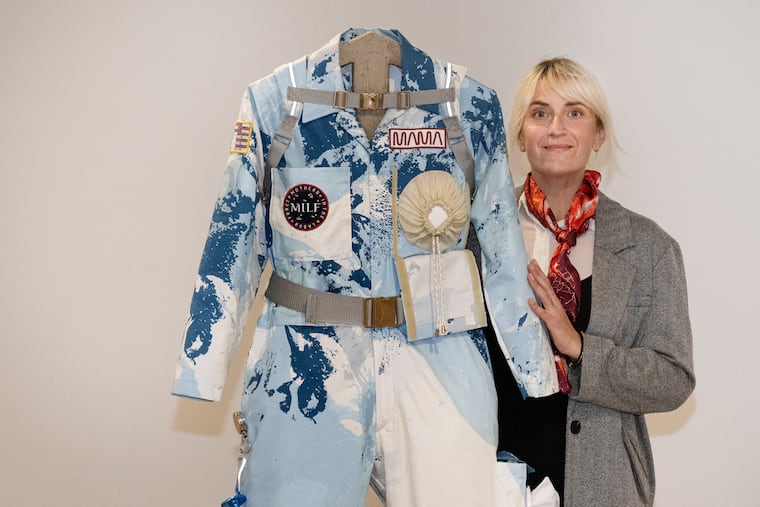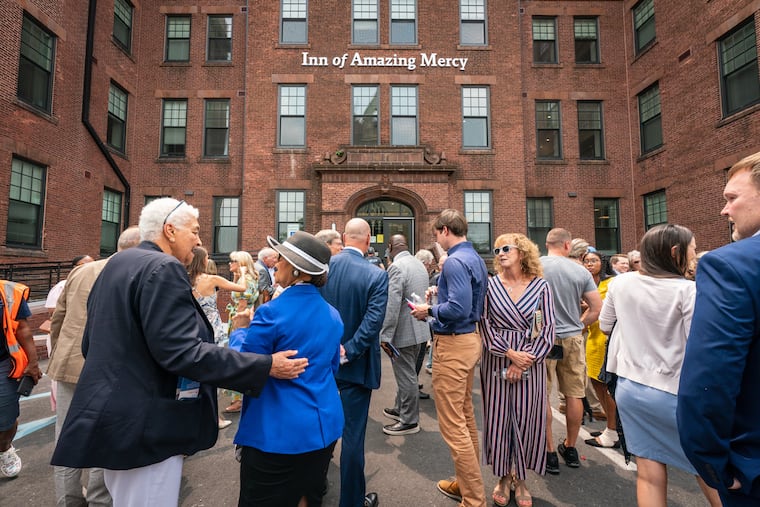Philly artist creates space suit-inspired uniform for mothers of toddlers.
In a compelling exploration of motherhood and artistry, Philadelphia-based artist Aimee Koran transforms personal experiences into powerful visual commentary through her series titled “Milkscapes.” The genesis of this innovative project originated in 2016, a transformative year for Koran as she welcomed her first child, a daughter. A seemingly mundane incident during a pumping session saw Koran spill breast milk onto a sheet of mylar film. Rather than discard the slick layer, she was captivated by the abstract formations the drying milk left behind, prompting her to create an evocative series that highlights the often-overlooked labor involved in motherhood.
Koran, now the mother of two children aged six and ten, describes the creation process for “Milkscapes” as pouring small amounts of breast milk onto glass, allowing it to dry and then capturing the results through photography. These images are later printed on a grand scale, transforming intimate, delicate moments into striking visual statements that bring attention to the merging of personal and public spaces in a mother’s life.
Expanding on her exploration of maternal themes, Koran has recently introduced a new project dubbed “MSS,” which stands for Mama’s Space Suit. This boiler suit, humorously yet poignantly designed for mothers of infants, serves as a uniform that reflects the challenges and nuances of contemporary motherhood. Through intricate design details inspired by NASA uniform imagery, the suit is imbued with cultural references, including a breast pocket for breastfeeding and embroidered patches that playfully reclaim derogatory terms associated with motherhood.
Koran’s craftsmanship extends to elements such as ovulation test strips, which form part of the suit’s decorative patches, and practical accessories like a pacifier and tissue holder. Each feature of the suit reinforces her commitment to acknowledging and elevating women’s labor in both creative and domestic spheres. The “Milkscapes” patterns integrated into the suit offer a deeply personal touch, symbolizing Koran’s connection to her own experiences as a mother.
Exhibited at the Fabric Workshop and Museum as part of the “Soft/Cover” exhibit, Koran’s work is not merely artistic but serves as a broader commentary on societal issues surrounding motherhood and women’s rights. She draws on her own lineage of women who worked in Philadelphia’s textile factories and emphasizes the importance of redefining labor associated with motherhood—often marginalized and undervalued.
Koran’s body of work resonates in today’s cultural climate, where the visibility of motherhood and the care economy is increasing, though Nelson recognizes that structural changes are still lacking. She highlights the urgent need for continued conversations around maternal health and rights, reflecting on how political battles are ongoing challenges that affect mothers daily. Through her art, Koran advocates for a reevaluation of women’s contributions—both in domestic settings and the broader economy.
“Soft/Cover” can be visited at the Fabric Workshop and Museum until August 17, offering free admission to those interested in engaging with Koran’s thought-provoking reinterpretation of motherhood and labor. The exhibition stands as a tribute to the complexities of being a maker and a mother, inviting critical discourse on the intersection of these identities in today’s society.







